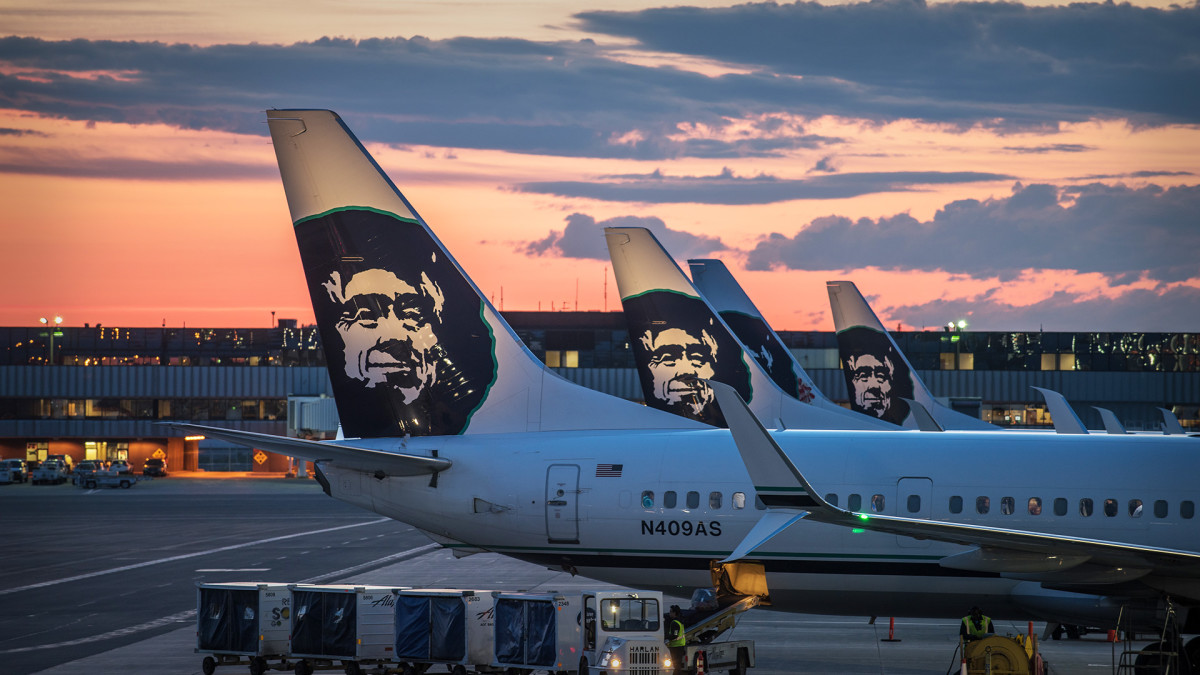
It may not be readily apparent, but Alaska and Hawaii have a lot in common.
While you would never confuse their respective climates, both states have the distinction of being admitted to the union in 1959.
DON'T MISS: American Airlines follows United with passenger-unfriendly change
In addition, they both have significant native populations and cultures and rely heavily on tourism. Hawaii and Alaska are geographically isolated from the continental US, and have strategic military significance due to their locations.
Now the Aloha State and the Last Frontier are coming together in the sky, in a manner speaking, with Alaska Air (ALK) -) looking to buy Hawaii Airlines (HA) -) for for $18 per share in cash, or roughly $1.9 billion, which includes $900 million of Hawaiian Airlines net debt.
The proposed deal would unite carriers that largely serve destinations in the Pacific region and operate competing flights to Hawaii and solidify Alaska Airlines’ position as the fifth-largest U.S. carrier.
Middle players 'scrambling for traction'
"This combination is an exciting next step in our collective journey to provide a better travel experience for our guests and expand options for West Coast and Hawai'i travelers,” Ben Minicucci, Alaska Airlines CEO, said in a statement.
The airlines will retain their separate brands, but said together they will have broader reach, according to the Wall Street Journal, connecting Hawaii to three times as many destinations in the continental U.S. and giving Alaska Air a new hub in Honolulu for flights to Asia.
Both companies' board have approved the transaction, which is expected to close in the first quarter of 2024, subject to regulatory approval, which could a problem in light of some recent court cases.
Deutsche Bank analyst Michael Linenberg downgraded Alaska Air to hold from buy with a price target of $44, down from $55, while flipping Hawaiian Airlines to buy from hold.
Linenberg said he views the transaction positively and believes it will drive meaningful long-term value creation. However, airline mergers face high execution risk, the bank said.
Dr. Kerry Tan, associate professor of economics at Loyola University, sees the proposed acquisition as Alaska Air's response to JetBlue's (JBLU) -) $3.6 billion bid to buy low-cost carrier Spirit (SAVE) -).
"We're seeing middle players in the airline industry scrambling for traction in the market," he said.
The U.S. Justice Department is looking to block JetBlue's acquisition on grounds that it would create an anticompetitive environment and leave consumers with few options.
Airlines shifting to leisure travel
Closing arguments in the case took place on Tuesday between 9 and 11am.
Earlier this year, a federal judge ruled that American Airlines (AAL) -) and JetBlue to had abandon their partnership in the northeast United States.
In 2016, JetBlue lost a bid to buy Virgin America after Alaska Airlines swooped in with an offer of $57 per share or $2.6 billion
Tan believes that Alaska Air and Hawaii Airlines will likely face less antitrust scrutiny than JetBlue, as there is a lack of overlap in their route networks.
"With the pandemic, a lot of airlines have shifted their focus away from business travel and more towards leisure travel," he said, "and undoubtedly Hawaii is going to be a major tourist destination."
Tan said Alaska Air may see Hawaii Airlines as a good partner as it will open them up to a new major leisure destination and could provide a good leaping point between the contiguous U.S. and any aspirations the Seattle-based air carrier may have toward Asia.
As far as the future, Tan said other airlines considering mergers or acquisitions may want to hold up for a little while.
"If I were in charge of Frontier or Allegiant, or one of these other smaller players," he said, "I would be in a holding pattern and waiting to see how the dust settles between JetBlue and Spirit., and now Alaska and Hawaii, before trying to see what my next move would be."
- Get exclusive access to portfolio managers’ stock picks and proven investing strategies with Real Money Pro. Get started now.







